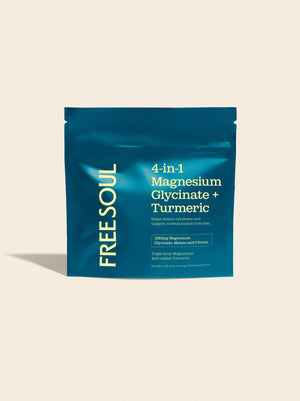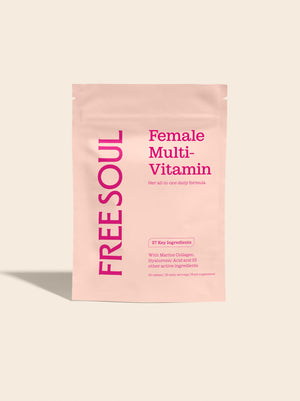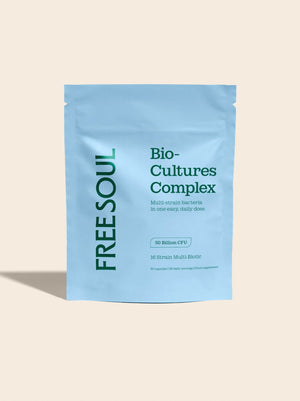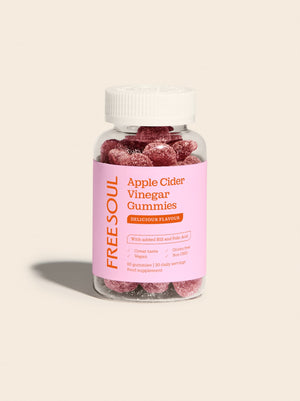We are all working towards achieving a harmonious balance between our bodies and our minds. This can be challenging in our busy day to day lives and we sometimes require a little extra help and support. Natural supplements have proven beneficial in helping to achieve balance, particularly for women as we navigate our hormonal cycles.
Ashwagandha and Maca have grown popular in the wellness industry, promising benefits that cater to the unique physical and emotional needs of women.
As we delve deeper into the historical roots that have enriched the reputation of Ashwagandha and Maca, we discover why they’re the revered choices in the quest for holistic wellness.
Historical Background
Ashwagandha
Ashwagandha, often dubbed as the "Queen of Ayurveda," has a rich lineage tracing back to the ancient Indian subcontinent. Its revered status in Ayurvedic medicine, a time-honoured medical tradition, speaks volumes about its therapeutic potential.
The mystique of Ashwagandha lies in its ability to harmonise the body's energies, creating a serene oasis amidst the chaos of daily stressors. Traditionally, it has been a go-to herb for bolstering vitality, with a special affinity towards enhancing women's health.
Maca
Crossing over continents, Maca narrates a tale of wellness from the high-altitude realms of Peru. This robust vegetable, a staple in traditional Peruvian culture, has been a wellness companion to the native people for centuries.
Known as the "Peruvian Ginseng," Maca's legacy is intertwined with enhanced stamina, vitality, and hormonal equilibrium. Its nurturing essence is particularly beneficial for women, offering a natural conduit to traverse the hormonal tides of menstruation and menopause with grace.
These age-old herbs, each with a rich cultural backdrop, extend a natural olive branch to modern women.
As we explore their nutritional profiles and delve into their health benefits, the dialogue between ancient wisdom and contemporary wellness continues, opening new horizons for women seeking a natural path to harmony and vitality.
Nutritional Profile
Ashwagandha
Ashwagandha offers a host of benefits. The magic lies in its active compounds known as withanolides, which are similar to the body’s own harmonising agents, encouraging a state of equilibrium.
Think of withanolides as essential tools that reassure your body amidst the noise of daily stressors. Ashwagandha is also a good source of iron, aiding in keeping our energy levels up.
Maca
The active compounds found in Maca are the stars of the show when it comes to enhancing energy and vitality. Picture macamides as little bursts of energy, gently improving your stamina.
Additionally, Maca is rich in essential amino acids, minerals, and vitamins that play a supporting role in our overall wellness journey.
Health Benefits
Ashwagandha
Stress and Anxiety Relief:
In daily life, stress has become an unwelcome companion for many. Ashwagandha helps to dial down the volume of anxiety and stress, allowing a sense of calm.
Hormonal Balance and Support for Thyroid Function:
The hormonal balance in a woman's body is delicate and Ashwagandha conducts it with grace. It's particularly supportive for the thyroid.
Enhanced Mood and Cognitive Function:
The benefits of Ashwagandha also extend to our minds, improving mood and sharpening cognition.
Maca
Boosting Energy and Stamina:
Maca is like that morning cup of coffee but without the jitters. It's known for boosting energy and stamina, making the list daily tasks feel less exhausting.
Hormonal Balance, particularly during Menopause:
The transition into menopause can be mentally and physically challenging and every woman's experience is unique to them. Maca can provide support in the regulation of hormones and psychological function.
Enhanced Libido and Fertility:
Maca is believed to improve libido in women by supporting hormonal balance, including oestrogen levels. Its nutrient-rich profile might also contribute to increased energy and reduced stress, which in turn can foster a healthier sexual desire and overall sexual wellbeing.
How to Incorporate Them into Your Wellness Routine
Both Ashwagandha and Maca are powerful ingredients that have found their way into modern wellness routines, thanks to their myriad of benefits.
Suggested Dosages and Forms
Ashwagandha:
The general recommended dosage for Ashwagandha ranges between 250-500 milligrams per day.
Maca:
Typical dosage for Maca ranges from 1500 mg to 3000 mg daily.
Combining Ashwagandha and Maca
Combining Ashwagandha and Maca could potentially amplify the individual benefits of each herb, offering enhanced energy, stress relief, and hormonal balance.
Conclusion
In summary, it isn’t about Maca vs Ashwagandha, as both are potent herbs with a history of promoting wellness, especially in women.







